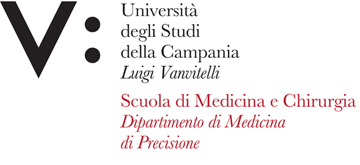Silvia ZAPPAVIGNA
Insegnamento di BIOCHEMISTRY
Corso di laurea magistrale a ciclo unico in MEDICINA E CHIRURGIA
SSD: BIO/10
CFU: 10,00
ORE PER UNITÀ DIDATTICA: 100,00
Periodo di Erogazione: Annualità Singola
Italiano
| Lingua di insegnamento | INGLESE |
English
| Teaching language | English |
| Contents | This course provides an overview and in-deep discussion of the main aspects of medical-oriented Biochemistry by relating molecular interactions to their effects on the organism as a whole, and on various organs and tissues, especially as related to disease mechanisms. The Biochemistry course is distributed over two semesters. It starts with discussion of the organization of the macromolecules, details on their hierarchical structure and a study of their assembly into complexes responsible for specific biological processes. Topics addressing protein function are also related to enzyme function with special regard to kinetics, Furthermore, the Course focuses on the major metabolic pathways and on their interconnection into metabolic regulated networks at cellular, tissue/organ and finally systemic level, which appear fundamental for the comprehension of the molecular bases of human pathologies. |
| Textbook and course materials | SUGGESTED REFERENCE TEXTBOOKS FOR GENERAL BIOCHEMISTRY: Thomas M. Devlin, “Textbook of Biochemistry with Clinical Correlations” Alisa Peet, Michael A. Lieberman, Allan Marks “Marks' Basic Medical Biochemistry” John W. Baynes, Marek H. Dominiczak “Medical Biochemistry” SUGGESTED TEXTBOOKS TO ADDRESS SPECIFIC TOPICS OF CLINICAL BIOCHEMISTRY: William J Marshall et Al. “Clinical Biochemistry:Metabolic and Clinical Aspects”, Churchill-Livinston (Elsevier)Nessar Ahmed (Editor): “Clinical Biochemistry”, Oxford University Press |
| Course objectives | The students will gain ability to interpret the biochemical changes occurring in the diseases and about the physiological mechanisms of the biochemical homeostasis in our cells. The main biochemical pathways regulating bio-organic molecule biosynthesis and energy production will be described and the model of pharmacological interference with biochemical pathways will be discussed. At the end of the course the students will have the bases to understand the ways to interfere with cell metabolism and the principles that drive the modern precision molecular medicine. |
| Prerequisites | To attend proficiently the Biochemistry Course, students need to have acquired a well-established background in Chemistry and Propaedeutic Biochemistry, Biology and Molecular Biology, and Physics. Access to the exam is regulated by passing the preliminary exams, as established by the Degree Course Council. |
| Teaching methods | Frontal lessons will be delivered by means of Power Point files projection or other tools. Throughout lesson, discussion will be stimulated to give elucidations and further insights on the topics object of the study. Teachers will be available throughout the course and afterwards, to provide explanations on each biochemical aspect studied and to support students during their training. |
| Evaluation methods | A mid term exams (quiz including 30 multiple choice questions) may be administered at the end of the first semester. This will not sum up with the final score and it is uniquely aimed at encouraging the students to challenge with apprenticeship of the first group of topics (1 point of score will be given to any right answer, no penalty for wrong answers). |
| Course Syllabus | 1 - COMPOSITION AND STRUCTURE OF THE LIVING MATTER (1 lecture) Biochemistry: definition and basic concepts. The composition of living organisms. Macromolecules: definition, composition and structures Nutritional biochemistry. Caloric content of nutrients. Micro and macronutrients 2 - 2. PROTEIN STRUCTURE AND FUNCTIONS (8 lectures) |








